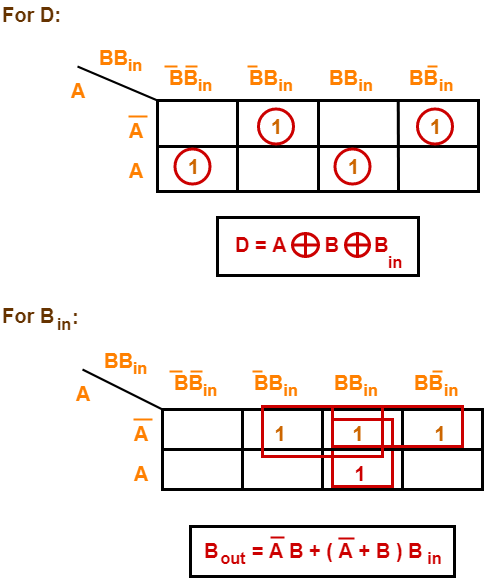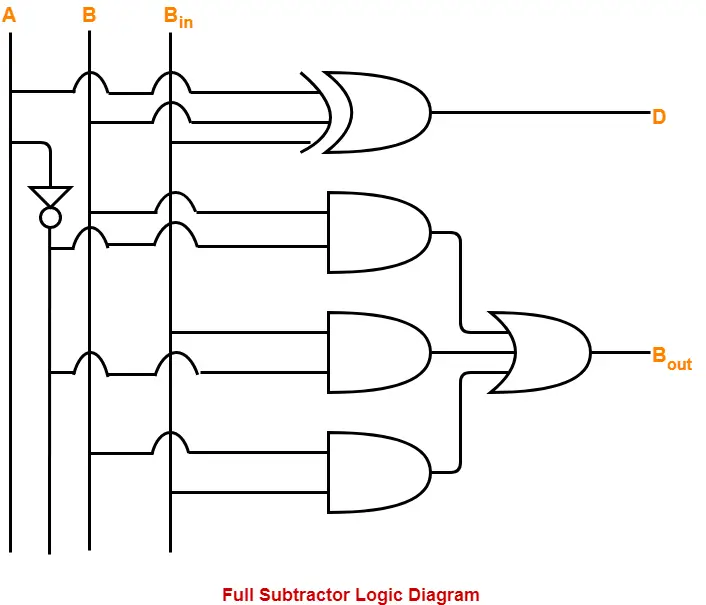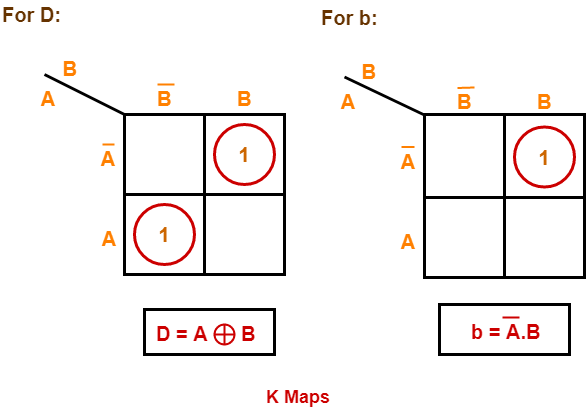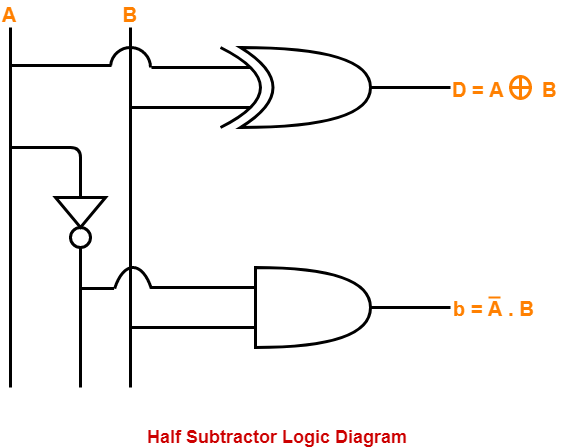Half Subtractor-
Before you go through this article, make sure that you have gone through the previous article on Half Subtractor.
We have discussed-
- Half Subtractor is used for the purpose of subtracting two single bit numbers.
- Half subtractors have no scope of taking into account “Borrow-in” from the previous circuit.
- To overcome this drawback, full subtractor comes into play.

In this article, we will discuss about Full Subtractor.
Full Subtractor-
- Full Subtractor is a combinational logic circuit.
- It is used for the purpose of subtracting two single bit numbers.
- It also takes into consideration borrow of the lower significant stage.
- Thus, full subtractor has the ability to perform the subtraction of three bits.
- Full subtractor contains 3 inputs and 2 outputs (Difference and Borrow) as shown-

Designing a Full Subtractor-
Full subtractor is designed in the following steps-
Step-01:
Identify the input and output variables-
- Input variables = A, B, Bin (either 0 or 1)
- Output variables = D, Bout where D = Difference and Bout = Borrow
Step-02:
Draw the truth table-
|
Inputs |
Outputs | |||
| A | B | Bin | Bout (Borrow) | D (Difference) |
| 0 | 0 | 0 | 0 | 0 |
| 0 | 0 | 1 | 1 | 1 |
| 0 | 1 | 0 | 1 | 1 |
| 0 | 1 | 1 | 1 | 0 |
| 1 | 0 | 0 | 0 | 1 |
| 1 | 0 | 1 | 0 | 0 |
| 1 | 1 | 0 | 0 | 0 |
| 1 | 1 | 1 | 1 | 1 |
Truth Table
Step-03:
Draw K-maps using the above truth table and determine the simplified Boolean expressions-

Also Read- Full Adder
Step-04:
Draw the logic diagram.
The implementation of full adder using 1 XOR gate, 3 AND gates, 1 NOT gate and 1 OR gate is as shown below-

To gain better understanding about Full Subtractor,
Next Article- Ripple Carry Adder
Get more notes and other study material of Digital Design.
Watch video lectures by visiting our YouTube channel LearnVidFun.

